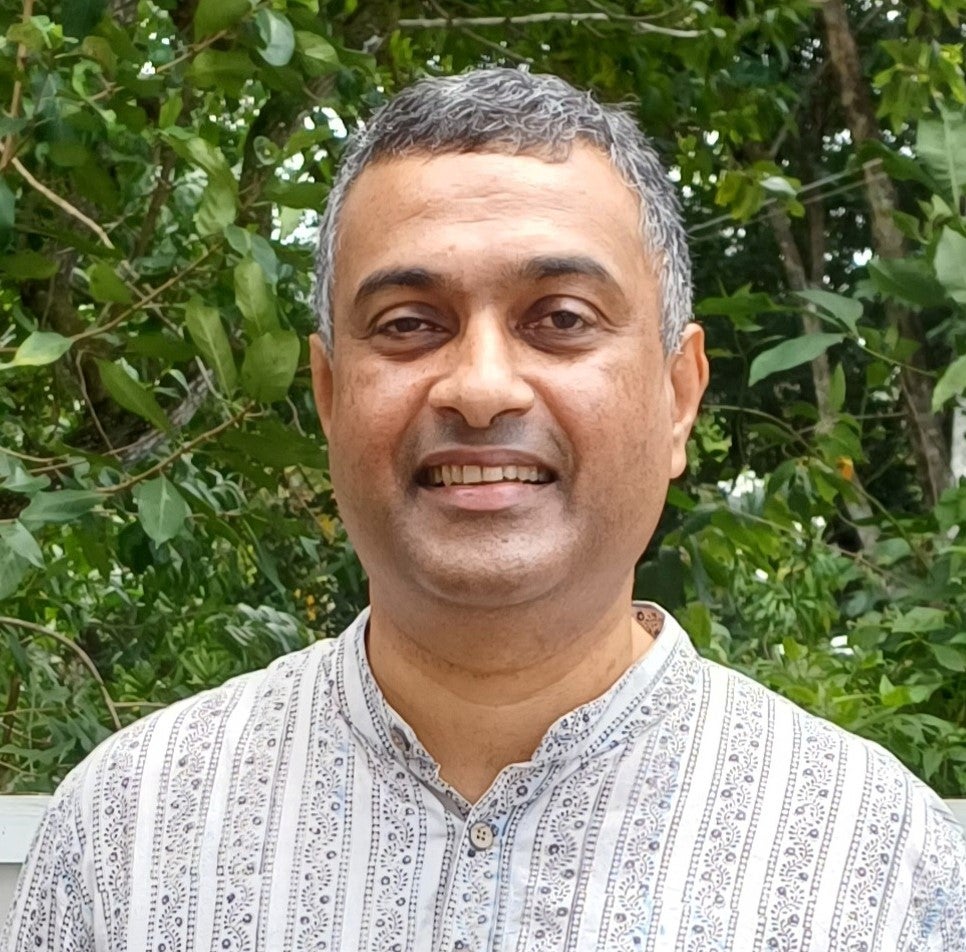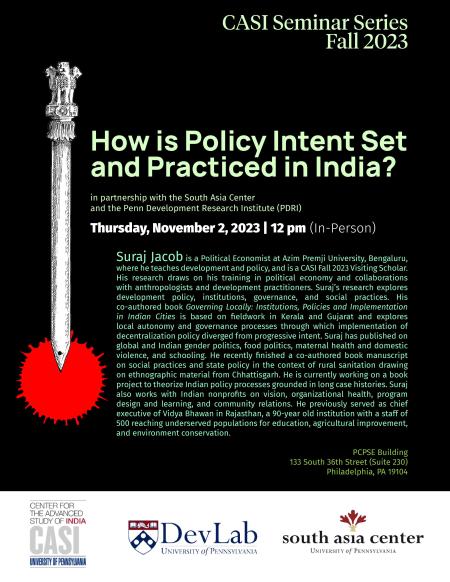How is Policy Intent Set and Practiced in India?
Ronald O. Perelman Center for Political Science & Economics
133 South 36th Street, Suite 230
Philadelphia PA 19104-6215
About the Seminar:
Public policy discussions tend to focus on the policy intent expressed by formal authorities (such as government departments) and suggestions to change it. Departing from that view, the talk will explore how intent comes to be set and what becomes of it in practice, given India's social and historical context. For this, I introduce a framework to trace the external and internal influences on government policymakers and implementers. The framework is illustrated by constructing an account of the setting and practice of policy affecting the customary rights of forest-dwelling communities over 150 years through four distinct policy episodes (annexationist, conservationist, participatory, and rights-based).
About the Speaker: Suraj Jacob is a Political Economist at Azim Premji University, Bengaluru, where he teaches development and policy, and is a CASI Fall 2023 Visiting Scholar. His research draws on his training in political economy and collaborations with anthropologists and development practitioners. Suraj’s research explores development policy, institutions, governance, and social practices. His co-authored book Governing Locally: Institutions, Policies and Implementation in Indian Cities is based on fieldwork in Kerala and Gujarat and explores local autonomy and governance processes through which implementation of decentralization policy diverged from progressive intent. Suraj has published on global and Indian gender politics, food politics, maternal health and domestic violence, and schooling. He recently finished a co-authored book manuscript on social practices and state policy in the context of rural sanitation drawing on ethnographic material from Chhattisgarh. He is currently working on a book project to theorize Indian policy processes grounded in long case histories. Suraj also works with Indian nonprofits on vision, organizational health, program design and learning, and community relations. He previously served as chief executive of Vidya Bhawan in Rajasthan, a 90-year old institution with a staff of 500 reaching underserved populations for education, agricultural improvement, and environment conservation.
Suraj Jacob is a Political Economist at Azim Premji University, Bengaluru, where he teaches development and policy, and is a CASI Fall 2023 Visiting Scholar. His research draws on his training in political economy and collaborations with anthropologists and development practitioners. Suraj’s research explores development policy, institutions, governance, and social practices. His co-authored book Governing Locally: Institutions, Policies and Implementation in Indian Cities is based on fieldwork in Kerala and Gujarat and explores local autonomy and governance processes through which implementation of decentralization policy diverged from progressive intent. Suraj has published on global and Indian gender politics, food politics, maternal health and domestic violence, and schooling. He recently finished a co-authored book manuscript on social practices and state policy in the context of rural sanitation drawing on ethnographic material from Chhattisgarh. He is currently working on a book project to theorize Indian policy processes grounded in long case histories. Suraj also works with Indian nonprofits on vision, organizational health, program design and learning, and community relations. He previously served as chief executive of Vidya Bhawan in Rajasthan, a 90-year old institution with a staff of 500 reaching underserved populations for education, agricultural improvement, and environment conservation.

